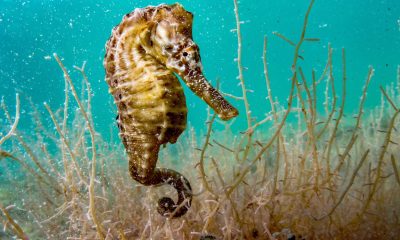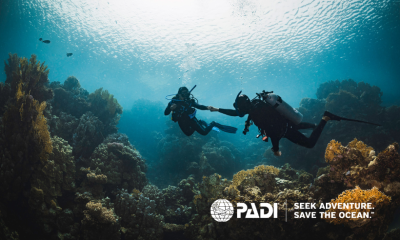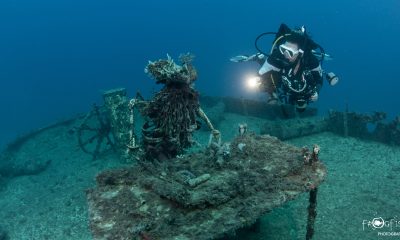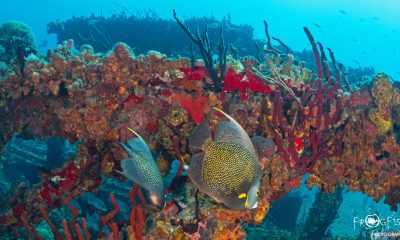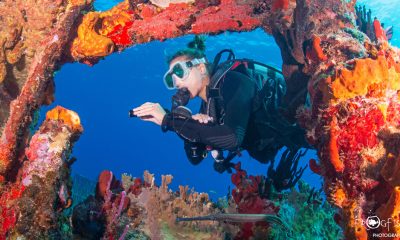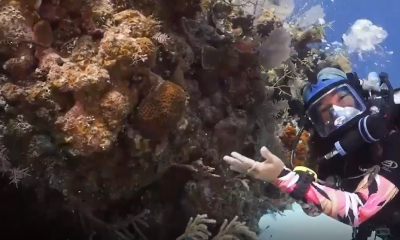News
Ground-breaking Shark Research conducted in St. Maarten waters
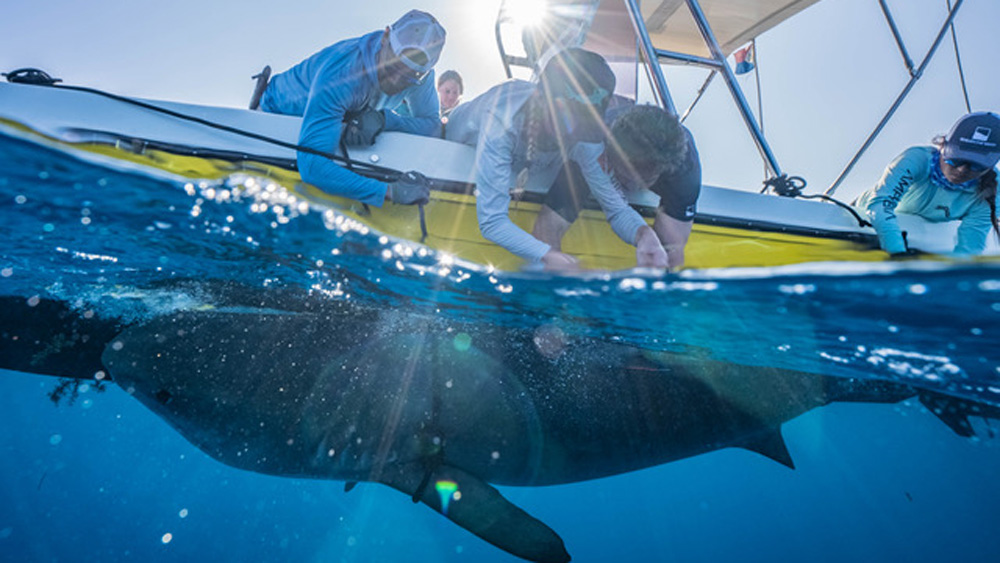
In April 2021 members from the Nature Foundation St. Maarten, the Dutch Caribbean Nature Alliance (DCNA), the Saba Conservation Foundation (SCF), and Beneath the Waves conducted multiple ‘scientific firsts’ as part of the “Shark Shakedown” project. The research expedition was a part of a wider research project into tiger sharks in the region funded by World Wide Fund for Nature (WWF-NL) through the Biodiversity Funds and the Dutch National Postcode Lottery. The researchers tagged eleven sharks, including for the first time a female pregnant tiger and endangered Caribbean reef shark in the Dutch Caribbean. The data will provide vital information for conservation strategies not only in St. Maarten, but for the wider Caribbean.
The expedition lasted five days in which three species of sharks were tagged, including tiger sharks (Galeocerdo cuvier), Caribbean reef sharks (Carcharhinus perezi), and nurse sharks (Ginglymostoma cirratum) all ranging from sub-adults to adults.
Participants received hands-on training with experts from Beneath the Waves in preparation for the upcoming expedition to the Saba Bank in August 2021. The goal of this upcoming expedition is to determine whether the Saba Bank is a breeding area for tiger sharks in the Eastern Caribbean. The high-definition ultrasound technology the team used was created by E. I. Medical Imaging and pioneered by collaborator Dr. James Sulikowski, of Arizona State University. This technology has successfully been used to identify maturity state and the stage of pregnancy in various shark species, a first for shark science in the region.
The scientists successfully confirmed early pregnancy stage in a large female tiger shark, as well as placed a satellite tag on the shark during the workup process. Using satellite tracking over the next few months, the scientists hope to confirm evidence of Sint Maarten being a breeding location for these globally threatened animals. In another shark tagging ‘first’, Beneath the Waves’ Chief Scientist, Dr. Austin Gallagher, placed the first camera tag on a tiger shark in the Dutch Caribbean. The team successfully recovered the camera package during the expedition, and the animal has already shown promising results regarding shark behavior in the region.
Both the satellite tag and camera tag have shown that these tiger sharks prefer to travel in the area between St. Maarten and St. Barths; however, these are only the first detections. No assumptions can be made yet regarding the movement of these animals.
The information gained from this research will provide a better understanding of the importance of both the status of sharks in Sint Maarten’s territorial waters and in the Yarari Sanctuary and the role these ecosystems play in the life-cycle of tiger sharks in the wider Caribbean region. Tiger sharks are currently categorized as Near-Threatened by the International Union for Conservation of Nature while Caribbean reef sharks have very recently been upgraded to Endangered. Sharks play key roles in maintaining the balance within local and regional marine ecosystems and maintaining biodiversity and therefore their protection is crucial.
Follow the Dutch Caribbean Nature Alliance’s Facebook, Instagram (dcnanature) or DCNA’s website (https://dcnanature.org/news/) to learn more about the shark expedition and other nature news from the Dutch Caribbean.
Photo credit: © Sami Kattan/Beneath the Waves (all rights reserved)
News
Seahorse National Park announced on Eleuthera in The Bahamas
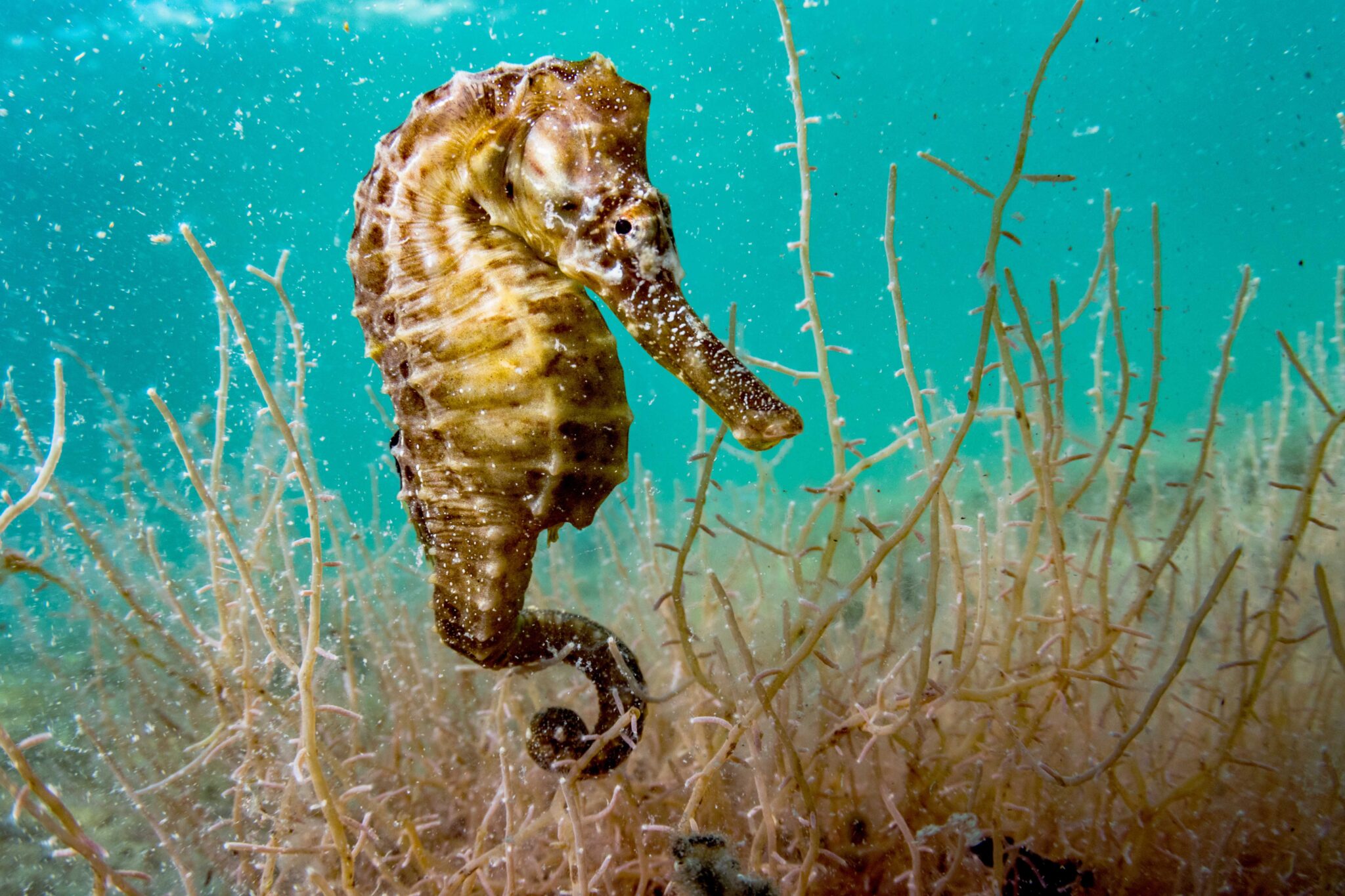
This week has seen the announcement of the designation of Seahorse National Park at Hatchet Bay Cave and Sweetings Pond on Eleuthera. This monumental announcement comes after years of efforts from the BNT and its partners in advocating for the protection of Sweetings Pond and its surrounding areas as an official national park under the BNT’s management.
Sweetings Pond is a large, land-locked saltwater pond in Hatchet Bay, Eleuthera. It has many unique natural features, but the most notable of them all is its incredible seahorse population, which is believed to be the densest population of seahorses in the world. The new 548-acre national park protects the entire one-mile-long pond and the surrounding terrestrial area. The land surrounding Sweetings Pond is a blend of intact coppice, mangroves, and farmlands. In addition, the new national park includes the extensive Hatchet Bay Caves system. This historic cave system is a popular attraction and contains a number of impressive geological features. It is one of the longest dry cave systems in The Bahamas.
Since 2014, the BNT has been leading efforts to have the area declared as a national park. This included years of public outreach and stakeholder consultations in communities across Eleuthera; education presentations in local schools; science and research efforts; and engaging consecutive government administrations. In 2018, the BNT submitted the “20 by 20 Marine Protection Plan” to the government, which included the recommendation to declare Sweetings Pond and other areas in The Bahamas as protected areas.
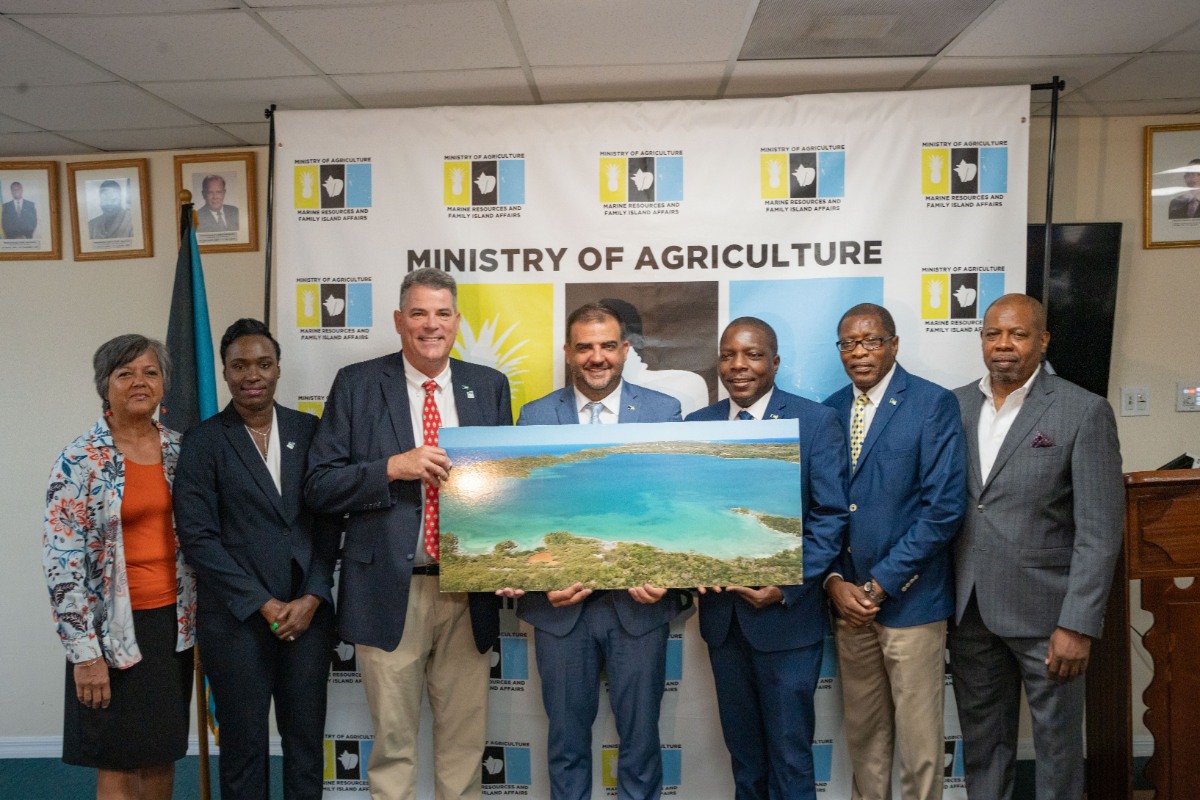
During the lease signing ceremony for Seahorse National Park, Minister Clay Sweeting, said, “This lease agreement for Sweetings Pond has been a long time coming. It represents a milestone in our journey towards sustainable development. It symbolises our collective responsibility to safeguard our natural heritage and create a harmonious relationship between economic progress and environmental preservation.
“I would like to express my gratitude to all stakeholders in this process of drafting and finalising this lease agreement. Their dedication, expertise, and commitment has been crucial in ensuring that this agreement falls in line with our vision of creating a thriving ecosystem while promoting responsible usage. Let us continue to preserve the jewel that is Sweetings Pond for many generations to come.”
The BNT invites the public to stay tuned for more news about its plan for the country’s newest national park: Seahorse National Park at Hatchet Bay Cave and Sweetings Pond!
To learn more about the role the BNT plays in managing terrestrial and marine national parks, conserving wildlife, and informing environmental policy, please visit its website: www.bnt.bs
Follow/subscribe to its various social media channels: Facebook, Instagram, Twitter, and YouTube.
Banner Image: A lined seahorse (Hippocampus erectus), female, clining to algae in an alkaline pond in The Bahamas by Shane Gross
News
PADI Club invites Ocean Lovers on exclusive dive trip to Bonaire this September
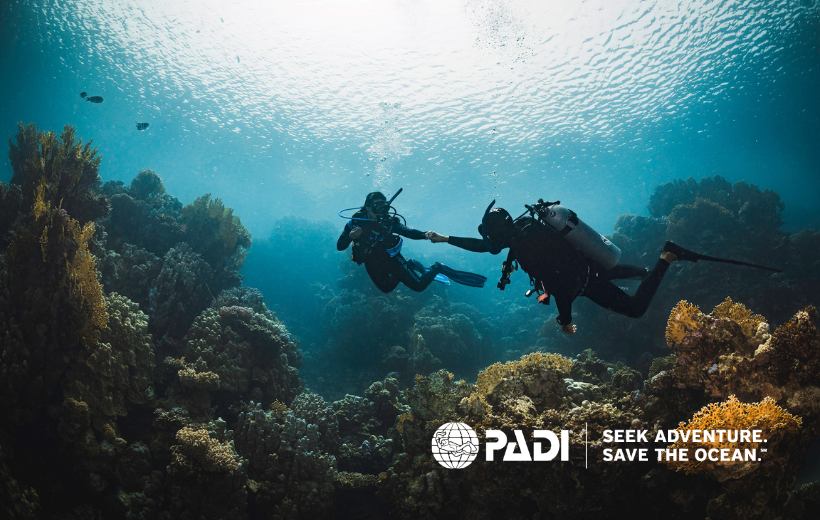
Following the popularity of the PADI Club trip to Belize at the end of July, a second “dive trip of a lifetime” has just been announced by PADI Club to Bonaire this September 23-30, 2023.
Offered exclusively for PADI Club members as part of their yearly benefits, attendees will get to seek adventure while staying at the all-inclusive Buddy Dive Resort, one of PADI’s premier members on the island. Other PADI Members in Bonaire – including Toucan Divers, Divi Flamingo, Wanna Dive, Dive Friends and Scuba Do – will also be hosting various dive experiences throughout the week.
“Bonaire is a unique and beautiful gem in the Dutch Caribbean and we want to show our Club Members this little island looms large as a dive destination,” says Zach Pavkov, PADI Club Operations Manager. “This trip offers participants a chance to not only explore a world-class diving destination but do so through some of the very best PADI Operators.”
PADI Club members will receive a generous discount for this seven-day diving adventure, with packages starting at $1,739 per diver for double occupancy.
Included in the package are:
- social events that include hosted dinners, cocktail parties and live music
- transportation in Buddy Dive Resort’s famous pick-up truck
- daily shore diving and boat diving
- accommodation, with the option to share a room with another solo diver or rent out one, two and three-bedroom apartments to host larger groups of divers
- surface interval activities that include PADI Seminars and island excursions like hiking and bird-watching.
“Because the water surrounding Bonaire has been an established marine park for 44 years, Bonaire is now a top-ranked destination with abundant marine life that includes scorpionfish, flounder and frogfish, moray eels, hawksbill turtles and eagle rays, ” continues Pavkov.
With limited spots available, the list of participants will be decided on a first-come, first-served basis. Those who are not yet PADI Club Members but are interested in joining the trip can sign-up, which will also give them access to:
- 20% of PADI eLearning® programs and PADI Gear™
- a free ReActivate® online refresher
- a free DAN® Prepared Diver course
- a subscription to Scuba Diving® magazine
- access to the PADI Club Celebrity Speaker Series webinars
- brand partner benefits from GoPro, Uber, Salt Life and more
To further support ocean lovers to create positive ocean change, five percent of the PADI Club membership fee will go towards supporting conservation efforts around the globe.
“PADI Club benefits are designed not just to empower divers to explore the ocean, but also enable them to play a pivotal role in saving the ocean too,” says Pavkov. “This year’s additional expedition to Bonaire gives our community the chance to come together and explore our shared blue planet in a truly meaningful and connected way.”
Click here to sign up for PADI Club and reserve your spot here to join the Bonaire dive trip.



